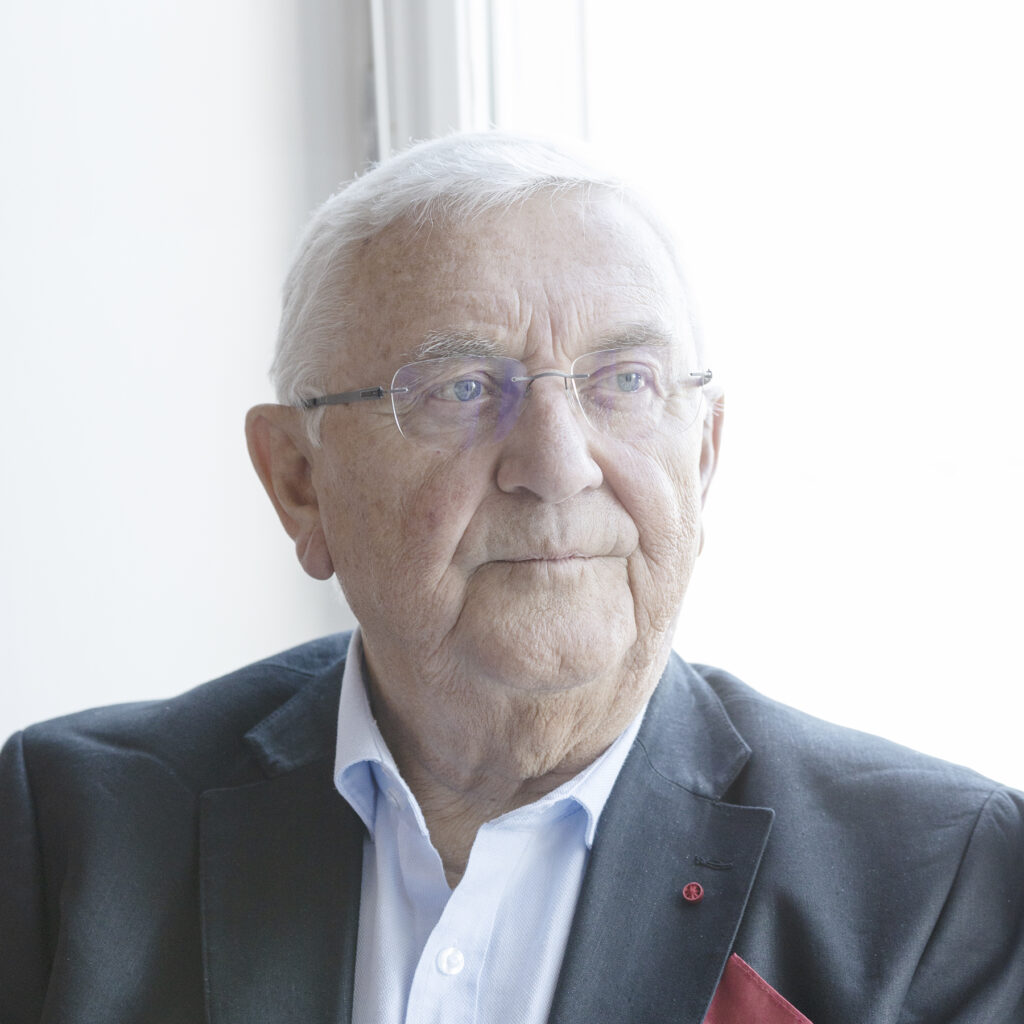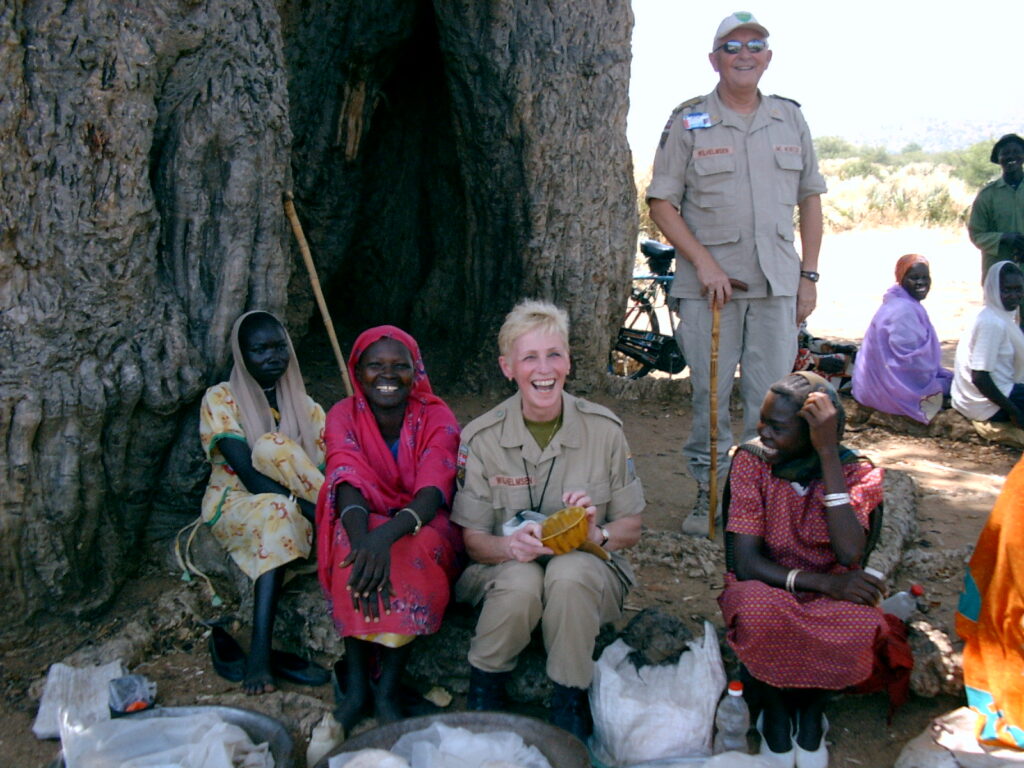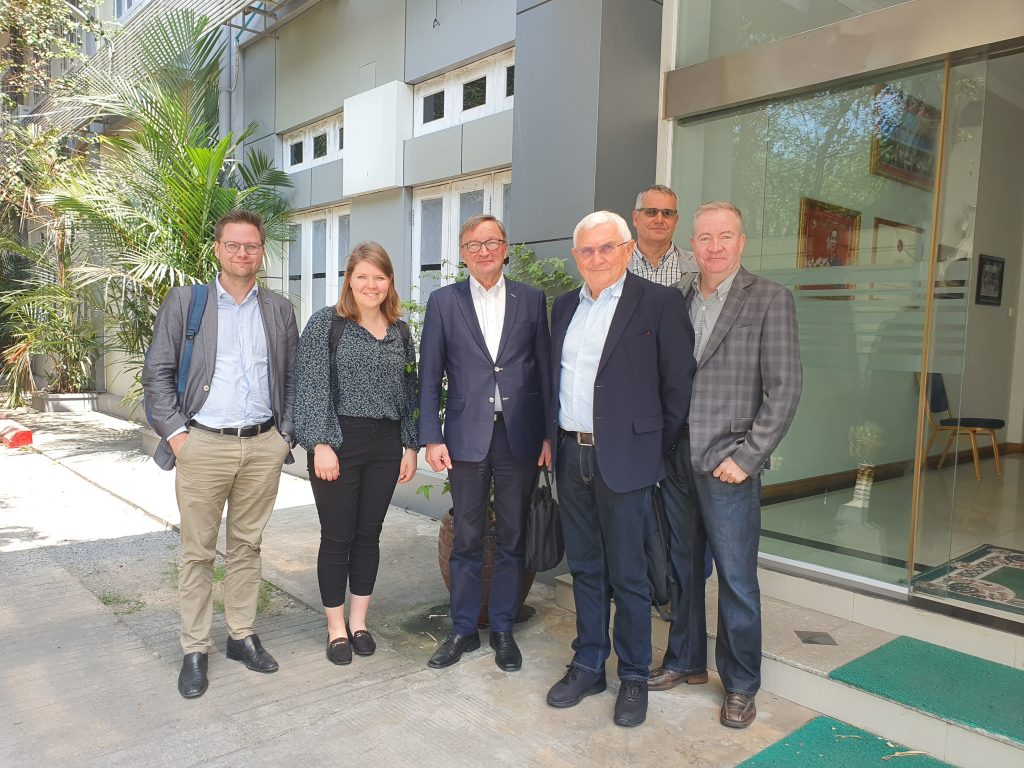It all comes down to building trust – CMI advisor Jan Erik Wilhelmsen reflects on a lifetime of peacemaking
On the occasion of his 80th birthday, CMI’s Senior Advisor Jan Erik Wilhelmsen shares what he has learned along the way about building peace. “It’s all about relations between human beings. If you can build that, you will achieve a lot.”

Jan Erik Wilhelmsen is concerned that countries are now increasingly favouring military means to address disputes. But armed force does not bring about lasting solutions. Photo: Maria Santto/CMI.
Wilhelmsen’s first peace mission, nearly 60 years ago, was an eye-opener. At just 22 years old, he served in the United Nations Emergency Force (UNEF) in the Gaza Strip from 1965 to 1966.
The UNEF’s main aim was to supervise the halt to hostilities between Egypt and Israel in the aftermath of the 1956 Suez Crisis. The UNEF was the UN’s first military peacekeeping operation and it was the first time ever that troops were sent to make peace rather than war.
The world looked different from how it appeared on TV back home in Norway.
“You could see a real conflict with your own eyes and learn from that. Especially, because you saw the atrocities and the suffering of the civilian population.”
“That experience woke up my appetite to work for peace.”

Jan Erik Wilhelmsen at market in Kurchi, Sudan’s Nuba Mountains, in 2005. Wilhelmsen was the Head of Mission for the Joint Monitoring Mission in the Nuba Mountains.
Tea and drinks
Since then, Wilhelmsen has had an outstanding career in peacekeeping and peacemaking, covering the Middle East, East Asia, the Balkans, Central America and Africa. Since January 2019, he has worked as a Senior Advisor for CMI.
At 80, Wilhelmsen is keen to share what he has learned about peacemaking. He stresses that above all else, it’s a matter of trust and how you build it.
“It’s all about relations between human beings. If you can build that, you will achieve a lot.”
A few episodes from his work in the field illustrate the point well. In the mid-1980’s, Wilhelmsen was sent out to observe the ceasefire in the dispute over Kashmir between India and Pakistan as part of the UN’s UNMOGIP mission. He was in charge of a position on the Indian side close to the Pakistani border. At one point, the situation became so tense that the UN military observers and the parties to the dispute could not hold their regular meetings for several weeks.
Eventually, the Indians and the Pakistanis sat down together for tea at Wilhelmsen’s initiative.
“We stayed there for three hours discussing. This was like a local mediation between two warring parties. I told them it’s useless to fight each other. You waste a lot of good ammunition and you don’t achieve anything because you can’t cross the river. In a way this meeting solved the problem, at least temporarily, because there was no more shooting in that area until I left the mission eight months later.”
Jan Erik Wilhelmsen
Born in 1943 in Norway.
Retired Brigadier General. National military training in Norway at different levels and international training with the UN.
Over 25 years of international work in the field, including in the Middle East, East Asia, the Balkans, Central America and Africa with the UN and with NATO.
Senior Advisor of the CMI – Martti Ahtisaari Peace Foundation since January 2019.
Married to Torill since 1966. One daughter and two grandsons.
Pastimes: “I used to play in a jazz group, but this hobby has later been taken over by one of my grandsons as I gave him my double bass. I’ve also inherited an interest for small game hunting from my father.”
Building trust was also a decisive factor when Wilhelmsen established from scratch the first UN peacekeeping operation to prevent the outbreak of war. The UNPREDEP mission in Macedonia, established in 1995, was charged with monitoring and reporting any developments that could undermine peace in the Former Yugoslav Republic.
In order to be informed about any threats, a special emphasis was put on winning the ‘hearts and minds’ of local people. In an operation “Sun Shine” – or “Shoe Shine”, as the soldiers themselves called it – all the UN bases were opened up to the public. “We told them exactly what we were doing and showed them our equipment. And we said that if they had problems, they should come to us. The event ended with a nice lunch for everybody.”
The local people became our best protection force, Wilhelmsen recalls.
“We learned that later. If a problem popped up in an area, they called on us immediately: Come, see and help.”
In Nepal, Wilhelmsen saw how important it is for mediation to establish personal relations with the parties early on, build confidence between them and capitalise on it. Prior to mediating the actual agreement between the government of Nepal and the Maoist insurgents on how troops and weapons should be managed on both sides in the ceasefire agreed in 2006, Wilhelmsen spent three months preparing the ground for mediation.
“We got to know each other very well. At the beginning, the parties were really hostile towards each other, but by the end that had changed drastically.”
Besides training and workshops, dinners and drinks were a key part of that confidence building.
“In principle, the Maoists didn’t take alcohol. But that changed after some time because the Nepal army officers they had to work with where good teachers in this field.”

Since January 2019, Wilhelmsen has worked as a Senior Advisor for CMI. Part of CMI’s team in Myanmar in 2019. From left: Oskari Eronen, Mikaela Steffansson, Jaakko Oksanen, Jan Erik Wilhelmsen, Kalevi Halonen and Jarmo Sinkkonen.
Working with the next generation
At CMI, Wilhelmsen mostly works on the Myanmar project, but he has also supported CMI’s work in Sudan, the Horn of Africa and Ukraine.
He points out that having an advisory role is quite different from the positions he has had for most of his career.
“I am a senior advisor, not a commander anymore. This is a very useful exercise for me and it allows me to learn new things.”
Wilhelmsson belongs to a small group of retired generals who have joined CMI. They provide valuable insights into the behaviour of armed forces and groups in conflicts. But it’s especially about having a general that other generals can talk to.
“It’s very easy to have a military person to deal with the military. Like it or not, the military system is more or less the same in any country. So, we’re on the same page.”
Wilhelmsen is concerned that countries are now increasingly favouring military means to address disputes. But armed force does not bring about lasting solutions. You also have to offer something tangible.
“Let’s think about a rebel group that has been fighting for a cause for many years. If you seize their weapons and say that we don’t want see you anymore, that’s not a solution. You create new rebel groups immediately. You need to take care of the people who have belonged to these groups.”
At 80, Wilhelmsson’s thoughts are very much with the next generations. He shows the blisters on his hands, which were caused by the renovation of his grandson’s studio in Oslo. In his hometown of Drøbak, he is also an active member of the youth support club network Kiwanis International, which helps disadvantaged youngsters to improve their lives so that they can play football, for instance. “Helping those in need is something I carry very much with me from my work abroad.”
Antti Ämmälä/CMI